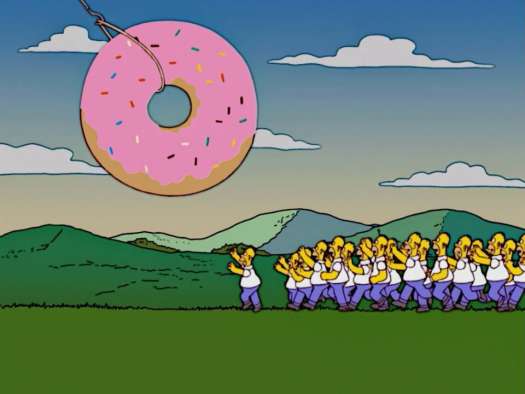Whether youre an artist or a label, surviving in the music business can be an expensive proposition. Anyone who thinks you can, in fact, just up and quit your day job is either delusional or trust-funded up the wazoo (or both). From buying instruments to renting rehearsal spaces to recording and touring, everything costs way more money than most folk have lying around their sock drawer.
We do have a pretty generous funding pool in this country. Most major Canadian cities have arts funding programs, as do the provinces and the federal government through public, private or semi-private outfits like Factor, Starmaker and VideoFACT. Funds are available for all kinds of projects in the form of grants (which are non-repayable) and loans (which are repayable under certain terms, many of which are quite easy to meet). It is your job as a wannabe in the music business to get to know these organizations and how to wrest money from them. Rule number one of financing: "Thou Shalt Not Leave Free Money On The Table.
However, grants and loans from within the music trade are hotly competitive and dont pay for everything. Thus, rule number two is: "Know Thy Instruments. Were not talking about nose flutes here, but rather financial instruments, a catch-all term from the world of bank financed credit. Having a good understanding of how credit works can take a lot of stress out of running your career as a business. Here are some of the basics.
In the basic loan scenario, a bank (or other financier) lends you money on repayment terms that, theoretically, are negotiated in a contract between you and the lender. (I say "theoretically because most people dont read the contracts, and even if they did, many terms are non-negotiable.) The key terms are the initial amount of the loan (the "principle), the timetable for repaying it ("amortization schedule), the amount of interest being charged, and whether the loan is secured or unsecured.
When a lender takes "security in a loan, that means they take the right to claim repayment of what they have loaned, plus interest, against other lenders you may have dealt with, and against other specific stuff you might own. The amount and nature of the security must be negotiated at the time of the loan. Banks cannot be bothered with placing security on, say, your guitar collection, because they dont have the time or expertise to evaluate its worth they usually only want cars or real property (land, houses) for security. (Having said that, many secured loans state that the security will include everything you own. Banks dont like risk.) It may seem scary to put up your car for a loan, but on the plus side, secured loans come with a much lower interest rate. Thats because lenders feel more at ease, knowing they can repo your car. If you own significant property, like a house, banks will readily give you a secured line of credit at prime or better. (Prime means the prime rate established by the banking industry; it follows the Bank of Canadas overnight rate.) Lower interest means your cost of borrowing is lower, and thats a good thing.
In an unsecured loan, the lender is at greater risk of losing money if you default on the loan. (Default means not paying it back.) So the interest rates for unsecured loans are much higher. Banks offer unsecured loans for typically twice the prime rate and higher. Although this jump in rates may seem extreme, youre still better off way better off using an unsecured credit line than a credit card. Credit cards are a form of unsecured loan with interest rates up to 25 percent and higher. Thats why they are so easy to get: the banks that issue credit cards offset all the risk and loss caused by the few jokers who dont pay their bills, by gouging the hell out of the people who do.
At this point, a delightful Catch 22 comes into play. Its hard to get a line of credit or a specific loan from a bank unless you have "good credit. And its hard to get good credit unless youve had a loan. Good credit doesnt mean youre a blank slate. Good credit means that you have a record of borrowing in the past and repaying on time. The financial industry keeps all the credit records of everyone who ever lived, deep underground in a lead-lined, nuke-proof cavern. Or maybe on a computer. But its there and it will stay there forever, and everyone in the business of lending money or letting you buy on credit (including banks, utility and phone companies and The Brick) can access it once youve signed the loan agreement. To even things up somewhat, you can always get a look at your own credit history, most easily through a company called Equifax. But it costs $15 to $25 to do so. (www.equifax.com)
Building your credit history is one of the smartest business moves you can make. As a musician, your income is going to ebb and flow, so youll almost certainly have to borrow from somewhere to make it through leaner times. If you have no credit history (i.e., youve never had a loan or a credit card), you can build your credit history by starting out with a low-limit credit card, a small loan or an instalment purchase. Make sure its an amount you can easily deal with and make the payments on time. Until you have learned discipline, do not allow your credit to "revolve, meaning do not keep buying stuff and paying it off. Get a $500 limit card and rack it up to the limit. Then tear up the card and pay that sucker off completely. Now youre ready for more.
After a couple of years of incurring and paying off your debts, youll have a top credit rating and lenders will be champing at the bit to lend you money. It may seem crazy, but eventually you will find that your debt is actually an asset! Banks will undercut the lending rates of their competitors in order to get you on board. You can and should shop around for the best rates. And if youre smart, youll take what you would have paid in higher interest and start a savings account. Put all these pieces together and you may find that youll be able to finance your musical aspirations after all. And if music doesnt work out, with all this financing know-how, think how well youll be able to do in the world of regular paycheques.
In the basic loan scenario, a bank (or other financier) lends you money on repayment terms that, theoretically, are negotiated in a contract between you and the lender. (I say "theoretically because most people dont read the contracts, and even if they did, many terms are non-negotiable.) The key terms are the initial amount of the loan (the "principle), the timetable for repaying it ("amortization schedule), the amount of interest being charged, and whether the loan is secured or unsecured.
When a lender takes "security in a loan, that means they take the right to claim repayment of what they have loaned, plus interest, against other lenders you may have dealt with, and against other specific stuff you might own. The amount and nature of the security must be negotiated at the time of the loan. Banks cannot be bothered with placing security on, say, your guitar collection, because they dont have the time or expertise to evaluate its worth they usually only want cars or real property (land, houses) for security. (Having said that, many secured loans state that the security will include everything you own. Banks dont like risk.) It may seem scary to put up your car for a loan, but on the plus side, secured loans come with a much lower interest rate. Thats because lenders feel more at ease, knowing they can repo your car. If you own significant property, like a house, banks will readily give you a secured line of credit at prime or better. (Prime means the prime rate established by the banking industry; it follows the Bank of Canadas overnight rate.) Lower interest means your cost of borrowing is lower, and thats a good thing.
In an unsecured loan, the lender is at greater risk of losing money if you default on the loan. (Default means not paying it back.) So the interest rates for unsecured loans are much higher. Banks offer unsecured loans for typically twice the prime rate and higher. Although this jump in rates may seem extreme, youre still better off way better off using an unsecured credit line than a credit card. Credit cards are a form of unsecured loan with interest rates up to 25 percent and higher. Thats why they are so easy to get: the banks that issue credit cards offset all the risk and loss caused by the few jokers who dont pay their bills, by gouging the hell out of the people who do.
At this point, a delightful Catch 22 comes into play. Its hard to get a line of credit or a specific loan from a bank unless you have "good credit. And its hard to get good credit unless youve had a loan. Good credit doesnt mean youre a blank slate. Good credit means that you have a record of borrowing in the past and repaying on time. The financial industry keeps all the credit records of everyone who ever lived, deep underground in a lead-lined, nuke-proof cavern. Or maybe on a computer. But its there and it will stay there forever, and everyone in the business of lending money or letting you buy on credit (including banks, utility and phone companies and The Brick) can access it once youve signed the loan agreement. To even things up somewhat, you can always get a look at your own credit history, most easily through a company called Equifax. But it costs $15 to $25 to do so. (www.equifax.com)
Building your credit history is one of the smartest business moves you can make. As a musician, your income is going to ebb and flow, so youll almost certainly have to borrow from somewhere to make it through leaner times. If you have no credit history (i.e., youve never had a loan or a credit card), you can build your credit history by starting out with a low-limit credit card, a small loan or an instalment purchase. Make sure its an amount you can easily deal with and make the payments on time. Until you have learned discipline, do not allow your credit to "revolve, meaning do not keep buying stuff and paying it off. Get a $500 limit card and rack it up to the limit. Then tear up the card and pay that sucker off completely. Now youre ready for more.
After a couple of years of incurring and paying off your debts, youll have a top credit rating and lenders will be champing at the bit to lend you money. It may seem crazy, but eventually you will find that your debt is actually an asset! Banks will undercut the lending rates of their competitors in order to get you on board. You can and should shop around for the best rates. And if youre smart, youll take what you would have paid in higher interest and start a savings account. Put all these pieces together and you may find that youll be able to finance your musical aspirations after all. And if music doesnt work out, with all this financing know-how, think how well youll be able to do in the world of regular paycheques.




